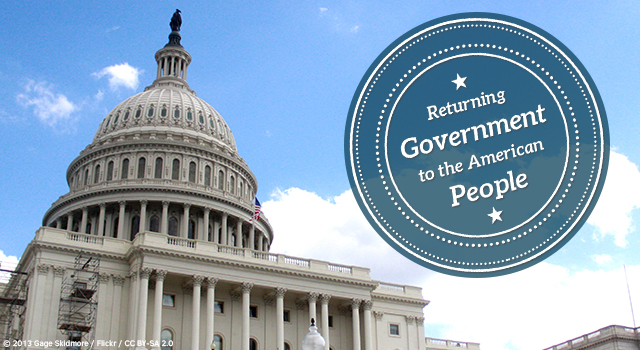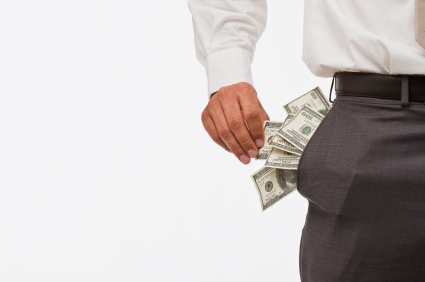Maine State Senator Ed Youngblood is a rare breed of Republican: one who supports tax-financed campaign programs. Because of that fact, he gets a lot of publicity from left-leaning organizations and publications that wish to advertise tax-financing schemes as nonpartisan “good government” initiatives rather than the failed, ideological experiments they are.
In our experience, most Republicans (and everyone who supports the First Amendment) see through the ploy. They may share a suspicion towards big money and agree that politicians are often corrupt, but they understand that when given the power to write the rules for their own campaigns, politicians will pass laws protecting incumbents and stifling criticism. They understand how campaign finance regulation, like other forms of government regulation, is hardly an obstacle to the powerful and well-connected, but threatens to crush the little guy and the upstart newcomer.
The most frustrating aspect of the debate over tax-financing programs is how little role there is for hard evidence. Tax-financing advocates repeat the same myths over and over no matter how obviously false they are, or how many times they are exposed as untrue. In a recent interview with The Nation, Youngblood took his turn, stating, “There is no question that in Maine we have seen a substantial increase in people who are not considered to be well connected and therefore would have found it difficult to raise the funds who choose to run for the legislature because of this program… There are more women in the legislature today, more blue-collar workers in the legislature today, and I believe that’s all a result of the Clean Election program.”
Youngblood’s remark is interesting because so far in their history, tax-financed campaign programs have failed to increase the number of women in legislatures and failed to increase the diversity of legislators’ occupational backgrounds. So I decided to check: are there really more women in the Maine Legislature today than there were before the state’s Clean Election program began?
I turned to the Center for American Women and Politics’ “Women in State Legislatures 2015” fact sheet, and found that Maine currently has 54 women in its 186-member Legislature, or 29.0%. In 1999-2000, the last Legislature before tax-financing was implemented, Maine had 52 women in the Legislature, or 28.0%.
So it turns out that Youngblood is technically correct: there ARE more women in the Legislature today than before tax-financing was enacted. Two (2) more, to be precise. And it only took a decade-and-a-half! At this rate, Maine could have gender equality in its Legislature as soon as the year 2307.[1] So pat yourself on the back, Maine. Take a victory lap. It turns out tax-financed campaign programs DO achieve their goals if you can be patient for the first three centuries.
All joking aside, Maine’s 1% increase in female legislators from 2000 to 2015 actually overstates the progress the state has made. Nationwide, the percentage of women in state legislatures has increased nearly twice as much – 1.7% to be exact – over the same time. In other words, women are gaining ground faster in states without tax-financing programs than they are in Maine.
Other states with full-blown tax-financing programs also lag behind the rest of the country. Connecticut has exactly one more woman in the General Assembly today (54) than it had prior to implementing tax-financing in the 2008 election cycle. Arizona hasn’t even got that far: it had 32 women in the legislature before it implemented tax-financed campaigns in 2000, and it has 32 today. Furthermore, both Arizona and Maine experienced their highest level of women in the legislature prior to tax-financing (34, or 37.8%, in 1997 for Arizona; 61, or 32.8%, in 1991 for Maine). The evidence is pretty clear: tax-financing is not helping women, although it might be hurting them.
Youngblood is welcome to “believe” what he wants about the effects of tax-financing programs, but he can’t make a plausible, evidence-backed argument that tax-financing has helped women in Maine or anywhere else. On the contrary, women that win public office in Maine and other states appear to be doing so on the basis of their own talents and the persuasiveness of their messages, not because some government program made it happen. We’ve said it before and we’ll say it again: female candidates don’t need handouts.
[1] Maine would have to add 39 women legislators to have equal numbers of men and women. Assuming Maine adds one woman to the Legislature every 7.5 years, 39 x 7.5 = 292.5 years.














